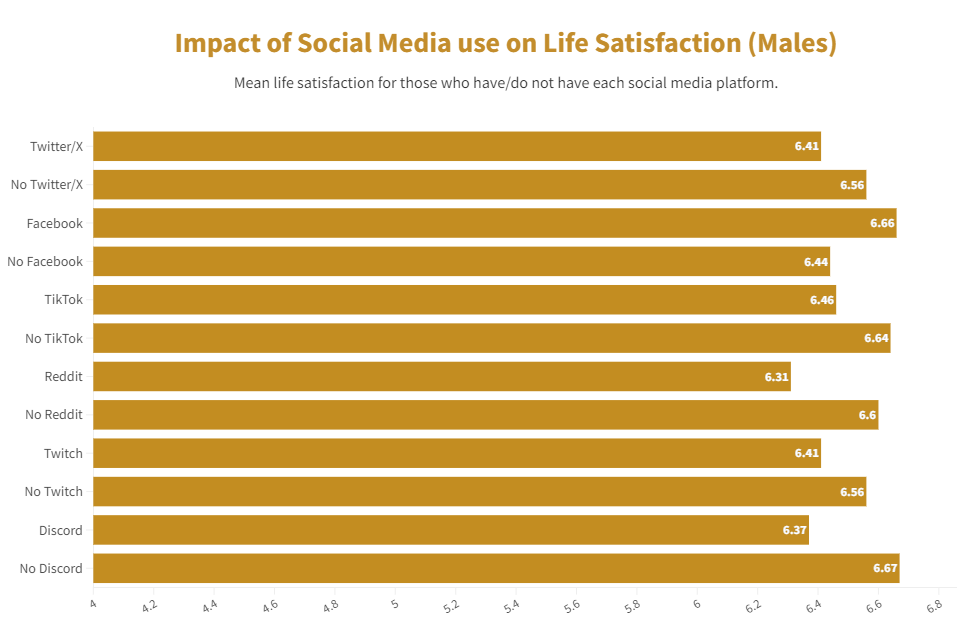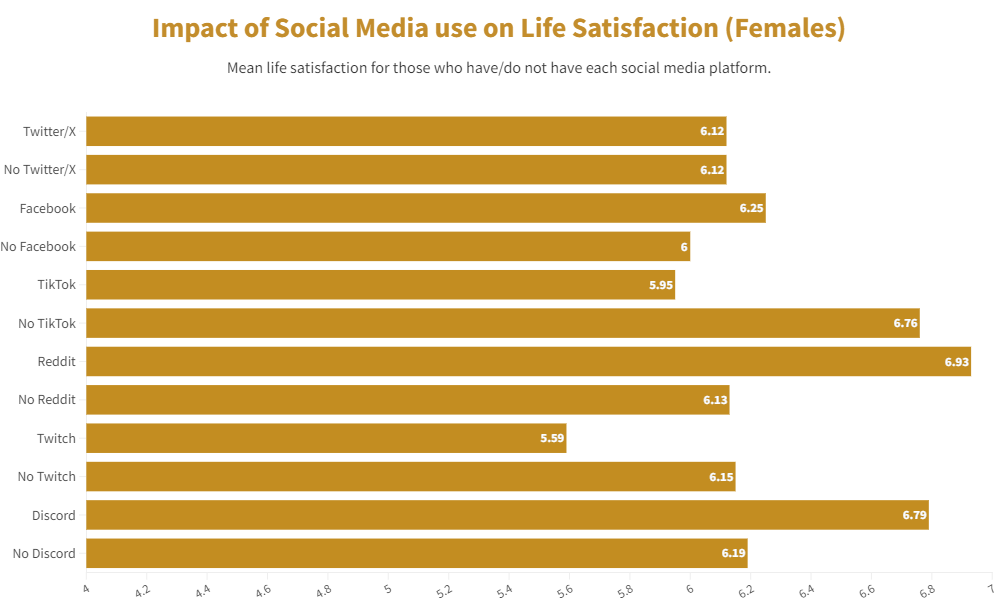Social media negatively impacting teens’ life satisfaction

A student scrolls Instagram on their phone. Photo: Jack Fox/ANU
Social media is negatively impacting the life satisfaction of Australian high school students, according to the latest findings from Australia’s largest survey of young people.
The study found non-binary students who regularly use social media reported the lowest levels of life satisfaction. Meantime, TikTok, Reddit and Twitch users who identified as male or female all had lower life satisfaction than those who did not use these platforms.
The latest round of data from the 10-year GENERATION study, which is led by The Australian National University (ANU), looked at the impact of regular use of certain social media platforms on life satisfaction levels for Year 10 and 11 students across the country.
Participants were asked to rate their life satisfaction on a scale from zero to 10, from “completely dissatisfied” to “completely satisfied”.
“The mean life satisfaction score was 6.21 out of 10, with males having the highest levels of life satisfaction with a score of 6.5, while young people who identified as non-binary reported the lowest levels of life satisfaction with a score of 5.2 out of 10,” lead researcher ANU Professor Ben Edwards said.
“While we know that young people face many challenges that could impact their life satisfaction, we found that the use of many of the mainstream social media platforms was associated with poorer life satisfaction.
“Interestingly, however, young people who identify as non-binary who regularly use Twitter/X reported higher levels of life satisfaction. Meantime, Facebook users had higher life satisfaction compared to non-users for all genders.
“Discord use was associated with the poorest life satisfaction for males, compared to TikTok for females.”
The study found 98 per cent of participants reported regularly using at least one social media platform, while nearly one-in-five, or 18 per cent, of young people actively post or share social media content at least once a day.



The GENERATON study also asked young Aussies about their life plans post-school, including whether they plan to go to university or if they have any intention of joining the Australian Defence Force (ADF).
The recently released Universities Accord report recommends that 80 per cent of the Australian workforce should have a tertiary qualification by 2050.
“Our study shows that almost one-in-ten young people have raised their university aspirations and are now aiming to go to university now they are in Year 11 compared to when they were in Year 10,” Research Fellow Jessica Arnup, from ANU, said.
“However, 12 per cent of respondents report no longer wanting to go to university in Year 11 compared to when they were in Year 10. Students who have a disability, come from disadvantaged backgrounds or regional or remote areas, or have parents who didn’t go to university were more likely to lower their aspirations to get a tertiary qualification as they move from Year 10 to Year 11.
“We should all be concerned that these factors still present barriers to young people fulfilling their potential.”
The study also found that about 20,000 fifteen-year-old students across Australia are interested in joining the ADF after high school. More than half, 57 per cent, of those students are male, while only two per cent of non-binary students said they were interested in joining the ADF.
According to the 2024 National Defence Strategy, there is a current shortfall of around 4,400 ADF personnel.
The GENERATION study began in 2022 and will run for a decade. It aims to reflect the collective experience of young Australians as they transition to life beyond school by following the journey of more than 3,500 high school students from about 300 different schools across the country.
Led by ANU in collaboration with the Australian Council for Educational Research and the Social Research Centre, and funded by the federal and state governments, the GENERATION study will follow the same cohort of young Australians until they are 25 years old.
Insights from the latest round of data are available online at https://generationsurvey.org.au/
FOR INTERVIEW:
Professor Ben Edwards
The Centre for Social Policy Research
ANU College of Arts and Social Sciences
M: +61 410 601 554
E: ben.edwards@anu.edu.au
FOR MEDIA ASSISTANCE:
George Booth on +61 439 362 537
or ANU Media on +61 2 6125 7979 or at media@anu.edu.au
This article was originally published by the ANU Reporter, here.